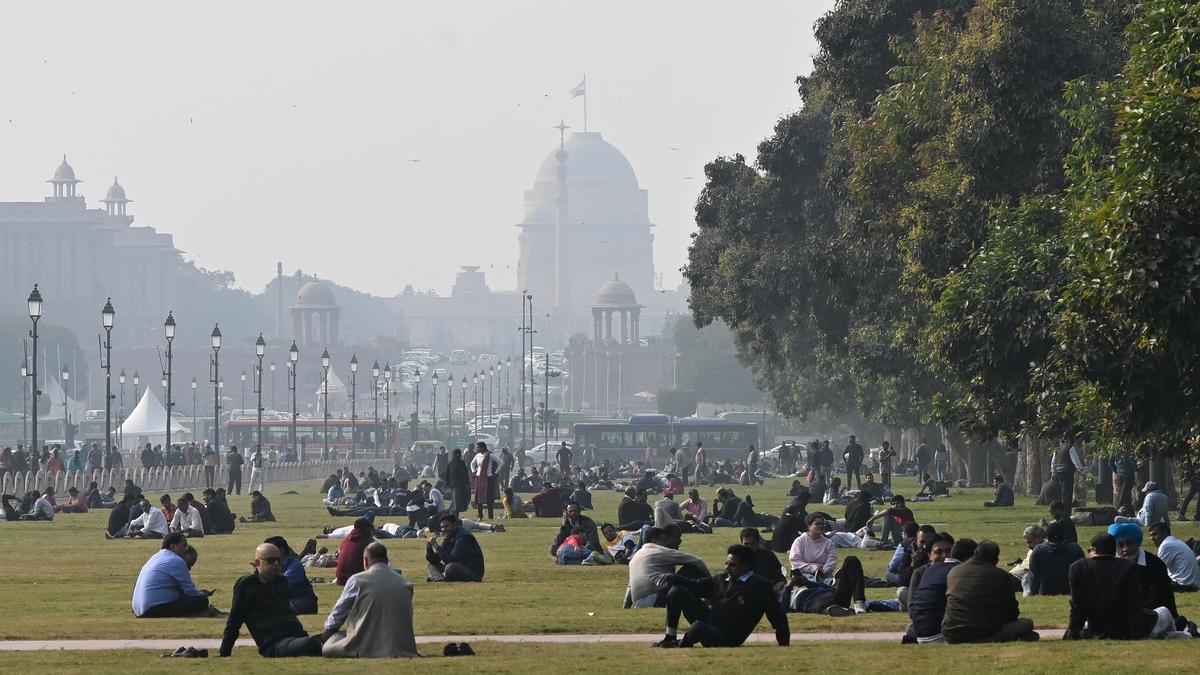People in large number seen basking in the sun near Kartavya Path on a cold sunny afternoon in Delhi.
| Photo Credit: Sushil Kumar Verma
The Supreme Court on Thursday (December 19, 2024) compared the implementation of emergency anti-pollution measures like the Graded Action Response Plan (GRAP) in Delhi National Capital Region (NCR) to “medicine given to an already critical patient”.
A Bench headed by Justice A.S. Oka further said the situation in the capital was “disastrous” with 3,000 tonnes of municipal solid waste being produced everyday and lying untreated as potent mounds of fire, pollution and disease.
“If 3,000 tonnes of solid untreated waste is generated every day, is it not necessary for the Delhi government and the Municipal Corporation of Delhi (MCD) to come together and put the brakes on certain developmental activities to stop further generation of solid waste… If huge housing projects continue, they will create more waste… Today the gap is 3000, it will continue to increase every day… Someday then, this court will have to take a call on stopping some of the developmental activities so that the generation of solid waste can be controlled,” Justice Oka observed.
The Delhi government said it was introducing biomining in its landfills but agreed that the areas under its jurisdiction produced 11,000 tonnes of solid waste every day and it had the capacity to process only 8,000 tonnes. However, it said the gap between waste produced and processed would thin by mid 2027.
Justice Oka countered that the bridge between processed and untreated waste would only widen with the years if things go on the same way.

The court directed the Delhi Chief Secretary to file a detailed affidavit on the number of fires that occurred in landfills in the past year and what preventive steps were taken.
During the hearing, Additional Solicitor General Aishwarya Bhati, for the Commission for Air Quality Management, said GRAP-IV restrictions were back in Delhi NCR owing to a disturbing spike in air pollution.

“The situation remains grim despite GRAP-IV. They [GRAP measures] are like medicines given after a patient falls critically ill. We have to deal with the basic issues… of why this is going wrong,” Justice Oka said.
Meanwhile, the court asked the NCR States to identify workers who are being deprived of their livelihood due to the imposition of GRAP-IV and pay them subsistence allowance from the labour cess funds. The court said the non-registration of workers should not stand in the way of the allowance.
Published – December 19, 2024 11:36 pm IST





